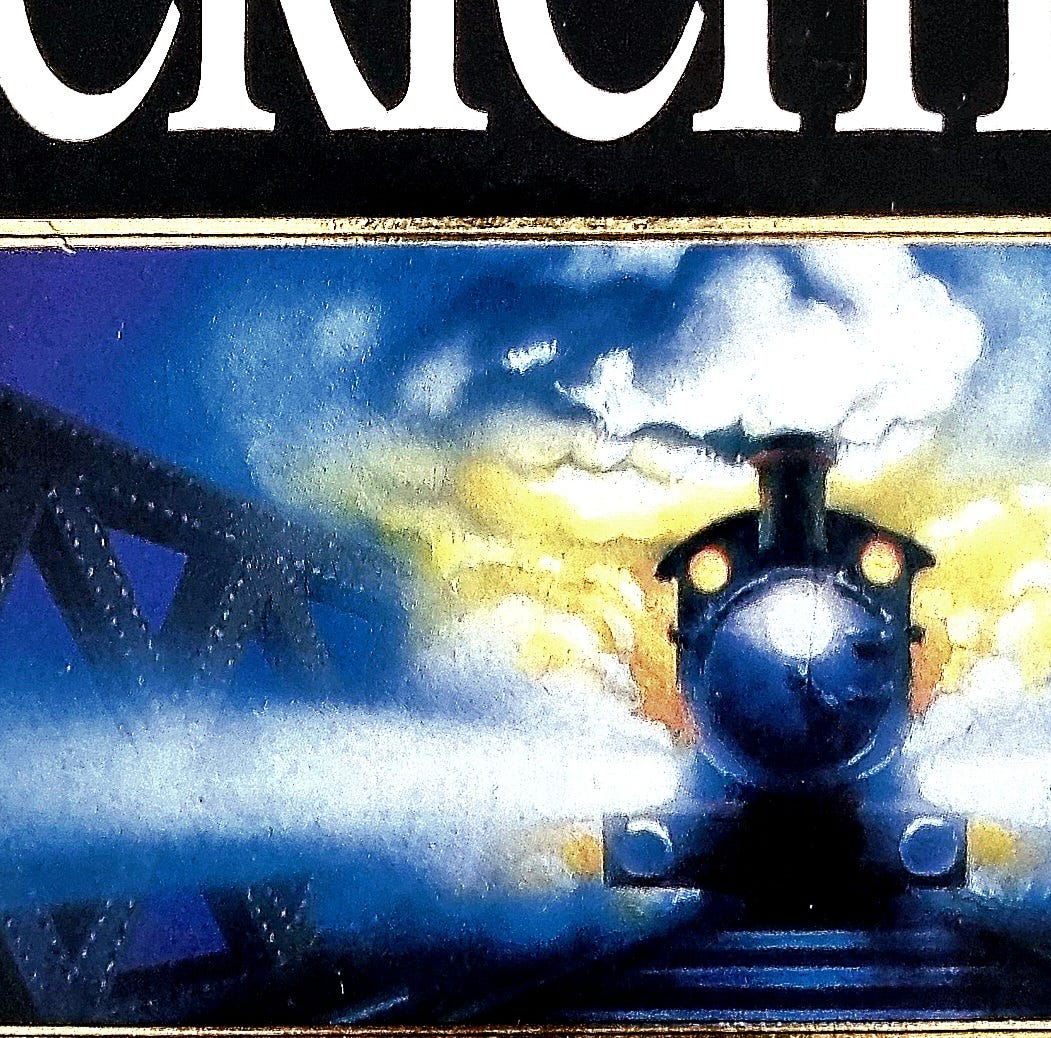The Great Train Robbery by Michael Crichton
Lessons on writing #113
Train heists, dinosaur islands, killer robots, plane crashes, cowboy archaeologists, talking monkeys and more!
Michael Crichton’s become one of my all-time favourites due to his audacity, genius, and finger-on-the-button-ness of his plots, characters and settings – his choices. It’s like a 10-year-old’s playtime but synthesised through 200,000 words and subjected to cranking of the technical aspects, fear, threat and irony all the way up to 11.
What do fans of someone like Crichton want? Same thing they wanted as kids but clothed in the maturity of a New York Times Bestseller.
It’s good guys vs. bad guys, fearsome foes, damsels in distress, pure corn syrup pancake kinda fare and it’s obviously popular as shit. It’s got that impish gleam in its eye, like I’ll throw everything away except a good story.
With Crichton, I never know if it’s real or made up, if it’s his opinion or his characters’, and if I can even completely trust his narrator. It’s what keeps me coming back for more.
It’s like Sinatra. I once heard how he sings just off beat, like a tiny fraction behind – it’s kinda like that with Crichton – where he never does quite what I expect.
Dinosaurs on an island? Sure, but I’ll tell you how it could actually happen.
A fun action story about talking monkeys? Sure but I’m gonna cite scientific papers throughout.
A techno thriller about climate change? I’ll make it a diatribe against the green economy.
With The Great Train Robbery, it was pretty much a straight-up creative retelling of an actual even in history. Crichton makes up dialogue and describes actual scenes and the characters feelings within those scenes, as well as going off on tangents about the history of the railways or the Indian Rebellion of 1857.
With MC, if I’m sure of one thing, he’s got an instinct for good stories. To pump out stories with surprising yet inevitable endings, MC takes a 10-year-old boy’s fantasy and plugs it into a highly effective machine comprising interesting and memorable characters, exotic locations, a sense of time passing which is easy to follow, smooth segues between scenes, easy-to-digest technical info, fast and tight dialogue and a hero’s journey that delivers a payload of catharsis at the end – which is what we expect whenever we pick up a book purporting to tell a good story.
Further reading
If you’re into books on creative retellings of actual crimes/adventures/escapades, then check out…
In Cold Blood by Truman Capote
A Death in Belmont by Sebastian Junger
The Executioner’s Song by Norman Mailer
Endurance: Shackleton’s Incredible Voyage by Alfred Lansing
The Bounty: The True Story of the Mutiny on the Bounty by Caroline Alexander
Lessons on writing
If you want more lessons on writing:
Bambi vs. Godzilla by David Mamet
Absolute Power by David Baldacci
Vultures’ Picnic by Greg Palast
Collapse: The Fall of the Soviet Union by Vladislav M. Zubok
Why They Kill by Richard Rhodes
Dragon’s Teeth by Michael Crichton
The Hero with a Thousand Faces by Joseph Campbell
State of Fear by Michael Crichton
There’s a hundred or so previous available as podcasts which you can listen to here.
House of Electric Sheep
Follow me if you’re on X.
Or find my novels on Amazon:
Black Skull (coming soon…)
Team Human (2022)
Eden 2.0 (2020)
one time (2017)
Ravenstone (2015)
Conversations with America (2013)

